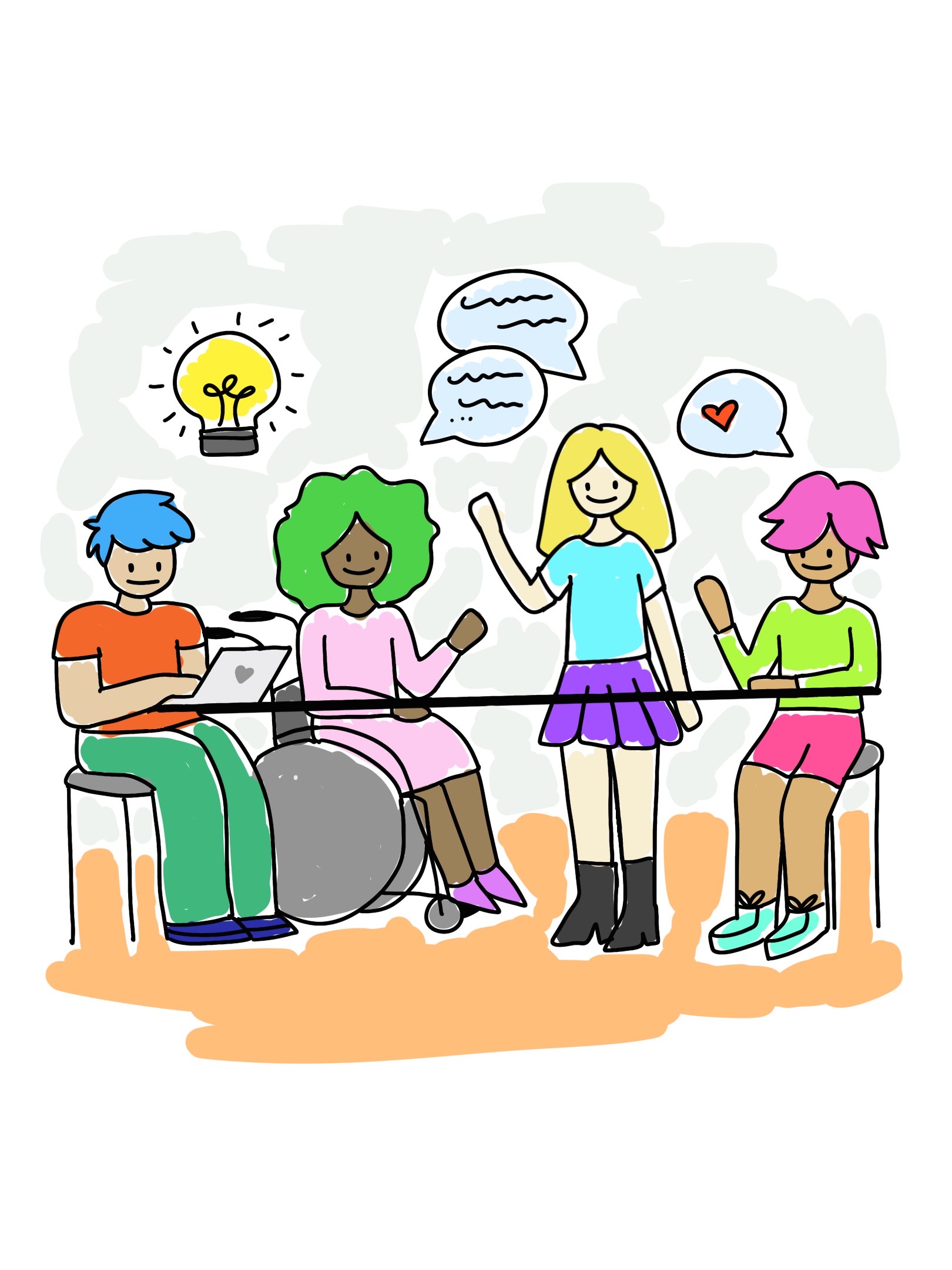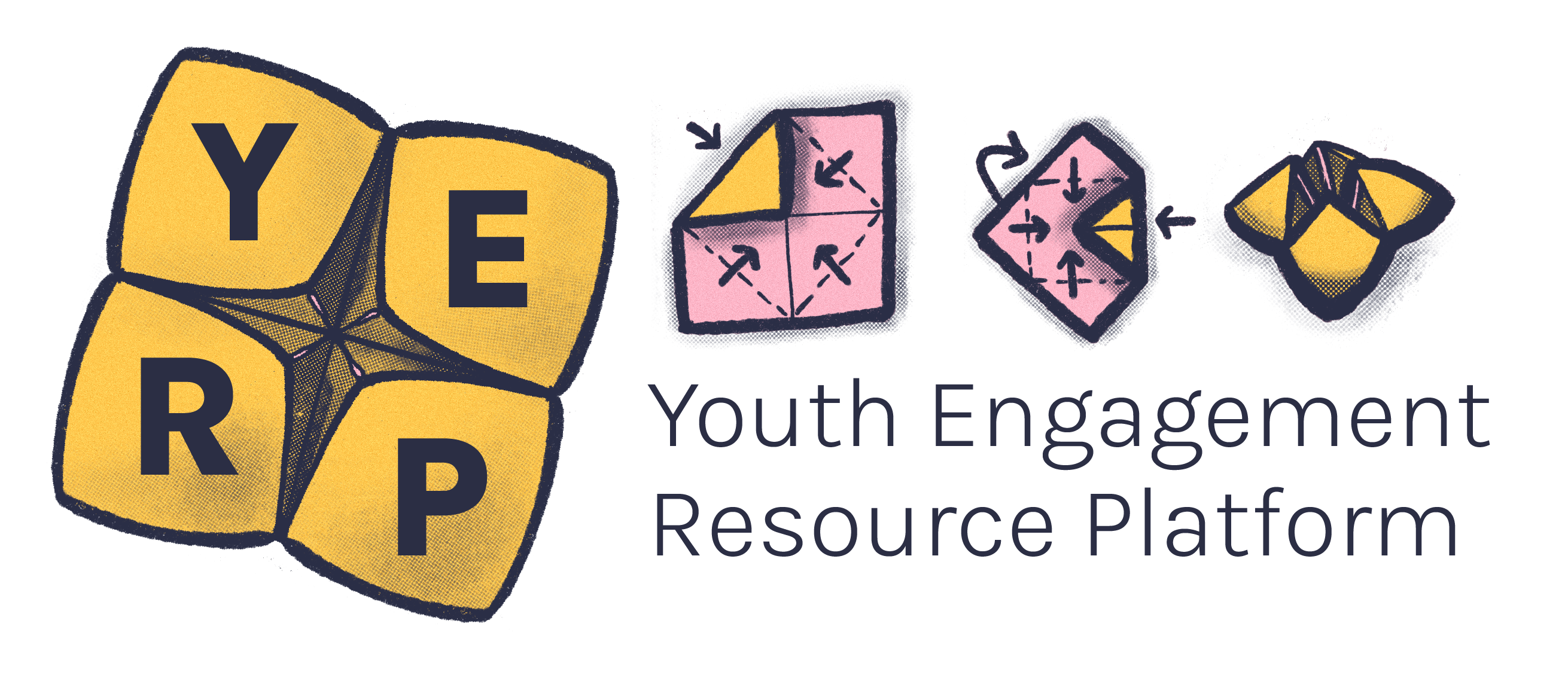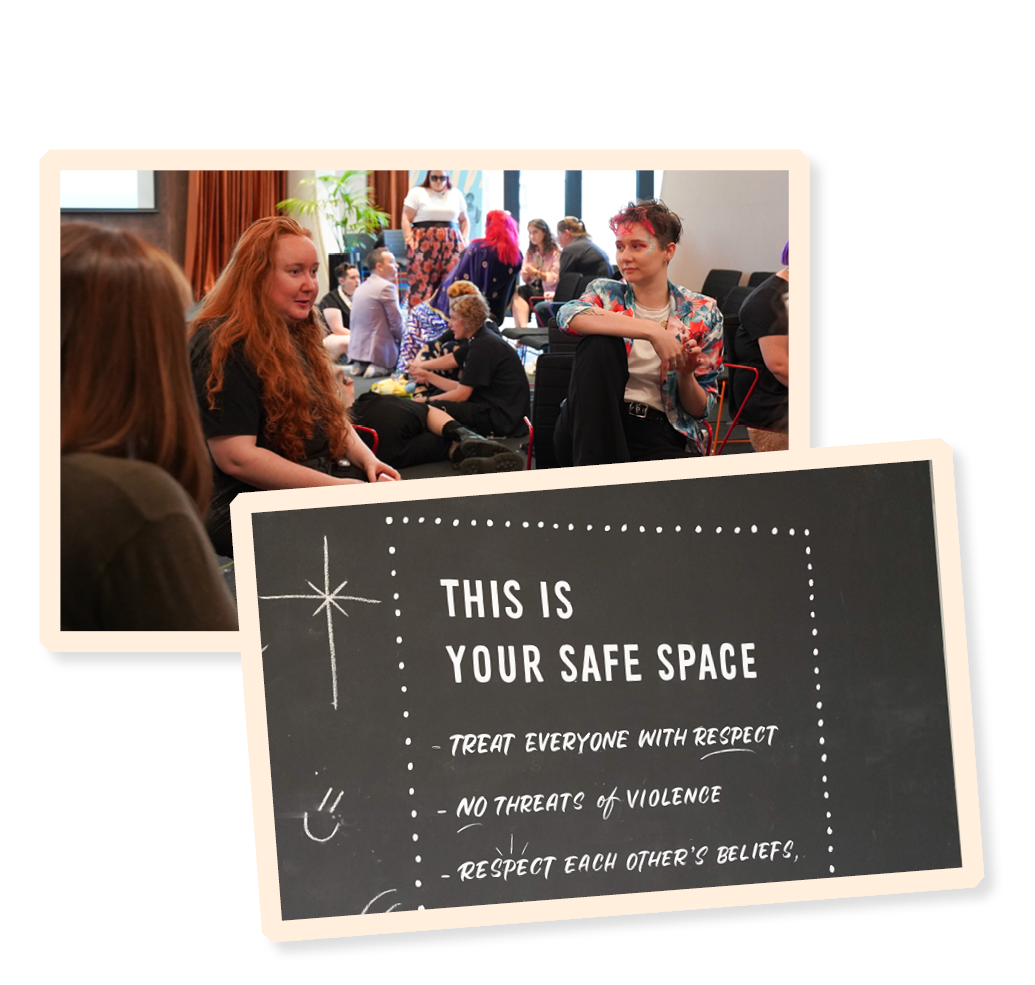It can be hard to know what to expect when entering a space or program for the first time. This can create a sense of anxiety or uncertainty about what is expected of those using the space.
Prioritising a few simple and effective strategies and approaches can encourage a safe and supportive environment for everyone. You might want to suggest these to an organiser or use these when running your own event!
- It should be collaborative and open.
- You should feel comfortable to raise concerns or make suggestions.
- Organisers encourage feedback and are responsive and open to participants’ ideas and experiences.
- Participants and organisers share transparent and open dialogue.
- Participants have opportunities to be involved in decision-making processes, either about the project they’re involved in or care the they're receiving.
- Everyone feels like they have choice and control throughout their time in the space.
- People feel that their identity and background is accepted.
- Language is inclusive and respectful of everyone participating.
- Clear effort is made to support all identities, such as asking for pronouns and access needs, and ensuring a culturally safe space.
Organisers should make time to collaboratively create a group agreement that outlines expectations and positive behaviour in the space. That way, everyone in the space is aware of their rights and responsibilities while using and visiting the space.
Group agreements
An important part of establishing a safe and supportive environment is creating a group agreement, or an agreement between you and your worker.
A group agreement is a collaborative process where values and expectations for appropriate behaviour while in a space are discussed amongst the group then compiled into a list. This forms the foundation of the group dynamic throughout your time working together.
You can request that the group forms a group agreement before you begin the event or program.
Allyship
Allyship is a big part of being in a safe space. Learn more about allyship.
A group of people sitting and standing at a table. They are talking and there is a light bulb above their heads.

As a young person engaged in a youth service or program, it isn’t solely your responsibility to create a safe space. However, there are some things you can do to make sure you contribute to making a space safe and supportive for others.
Ways you can help create a safe space
- Ask for people’s preferred pronouns when meeting them for the first time and use them correctly.
- Allow room for all voices in the space to be heard and try to include those who may be quieter or more reserved.
- If meeting online, use the chat to respond or verbally direct your comments.
- Be sensitive and empathetic to other people’s experiences and identities whether you understand them or not.
- Use inclusive language when sharing your own experience and talking to and about others.
- Contribute your thoughts and ideas. When all group members are actively involved the experience is enriched for everyone.





